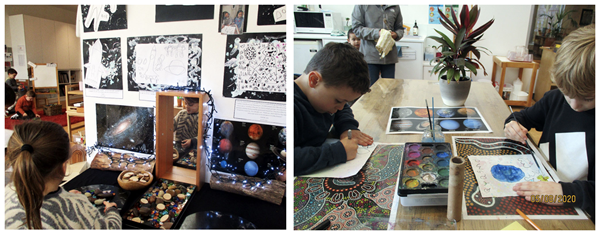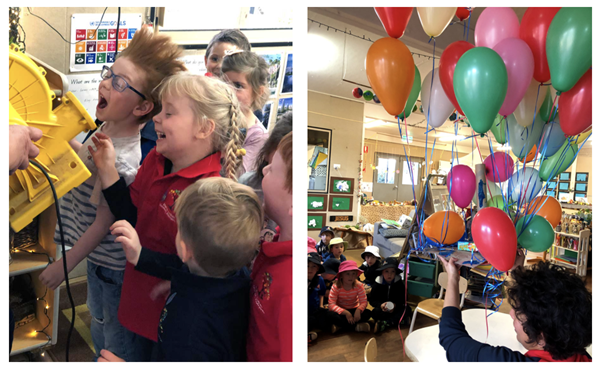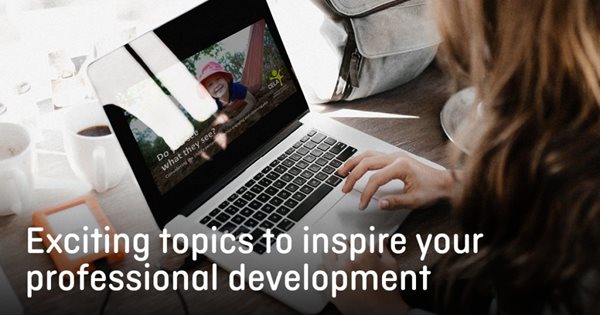The biennial Little Scientists Early STEM Award celebrates early childhood services’ achievements in the areas of inquiry-based learning and child-led STEM exploration.
In this two-part series, we share stories from some of the 2020 winners, along with insights into how the children benefited from the experience, and why the projects stood out to the judging panel.
It may just inspire you to enter next year’s awards!
What is inquiry-based learning?
STEM education integrates the learning areas of science, technology, engineering and mathematics. Inquiry-based learning is an approach for teaching STEM that prioritises investigation and problem-solving. Children start with questions and use different methods of exploration to find the answers.
Inquiry-based learning is the opposite of educators giving children facts to memorise. Instead, educators learn alongside children. A project can take many twists and turns, with unexpected questions and answers.
Child-led STEM exploration often starts with children asking questions about their everyday lives. When educators let children follow their curiosities, the learning has greater context and meaning.
Children and educators co-constructing knowledge: National winner Bambou Early Learning Centre showcase out-of-this-world learning
Victoria’s Bambou Early Learning Centre took out last year’s top prize as the national winner for a project that grew out of a spontaneous discussion among children about the SpaceX Dragon capsule launch. Educators extended on the topic by researching answers to the children’s questions. They learned alongside the children, co-constructing knowledge together.
While the children’s perceptions and perspectives were the cornerstones of the project, educators also used the opportunity to familiarise the children with the science behind the launch through intentional teaching.
“Participating in the STEM Award was a fun, exciting and smooth process for all of us, especially since it was already an existing and ongoing inquiry project,” shares Bambou Early Learning Centre’s educational team, which consists of Director, Haritsa Xenidis, and Early Childhood Teachers, Leonelle Torrefranca, Debra Anggraeni and Debbi Lamprou.
“Winning the award was very humbling and rewarding, considering that it was in the midst of the COVID-19 lockdown period.”

A highlight of the project was an interview with the resident lecturer at the Australian Space Agency, which stemmed from the children’s idea of “asking the scientist”. The children participated from home through a virtual communication platform and were able to ask questions about space and rocket ships.
“It was a great way for us to extend on our community engagement with an expert in the field,” shared the Bambou team. “It also inspired some children to say that they would like to become scientists and astronauts in the future.”
The Little Scientists judging panel were impressed by the authentic child-led, inquiry-based nature of the project. They relished the way in which one moment of curiosity was projected into a long series of varied activities that integrated different curriculum areas, enriched by the educators’ intentional teaching of the scientific method.
Three ways this project benefited the children:
- The children learned how to ask professionals for knowledge, to extend and facilitate their learning.
- As the project was a response to the children’s interests and was child-led, the children were engaged in their learning and saw that their interests were taken seriously.
- The children became curious about their world and the universe.
Read more about the winning project.
Science, space and sustainability – QLD state winner Concordia Lutheran College Kindergarten
Concordia Lutheran College Hume Street Kindergarten won the state award for Queensland. Their project was also about space and explored the possibility of humans living on other planets with an overlay of sustainability.
The children began by discussing their values. They listed the things they wanted their planets to have: farms to grow watermelons and strawberries, cities with houses, roads and bridges, rubbish dumps and recycling stations, grass, trees and water.
Next, the children conducted science experiments to learn how they could make their visions a reality, including how to make a city float.

Educators and children explored questions such as:
- What would they need to survive?
- What can humans not live without?
The children learned about space, planets, astronauts, and science concepts including air, water, materials and force.
“The UN Sustainability Goals were great to explore as they highlighted the important aspects of our world that we need to survive. I think children take this for granted, and it really highlighted the importance of caring for our environment,” says Melissa Giles, Service Leader and Teacher.
Educators allowed the children to work independently as much as possible. They encouraged the children to ask their peers for support and help and provided back up for any questions that were not able to be solved by the children.
“It was lovely to see the children communicating with each other, finding solutions to their problems together, rather than teachers providing them with the answers,” shares Melissa.
“As a teacher, it was so interesting to watch. It was a little challenging to stop ourselves from stepping in straight away, but it was so great to just give the children the time they needed to continue their work, and the results were simply amazing.”
How the children benefited from this project:
- Sustainability knowledge was taught through imagination, wonder and storytelling.
- The children learned how to find answers by creating their own unique science experiments.
- Social and emotional development was supported as the children collaborated in teams.
Read more about this project.
How to start your own inquiry-led STEM project
Are you inspired to launch a space project at your own service? Instead of classic project activities like making a model of the solar system, let the children decide what they would like to learn and engage in.
Bambou Early Learning Centre’s educators say, “Listening to the children’s voices, noticing their interests and nurturing their curiosity is the best way to initiate any inquiry-based project.”
Melissa Giles of Concordia Lutheran College Kindergarten says, “allow the children time to explore and inquire, and then step in when they need the support.”
Further reading:

Have you seen our new live webinar training calendar?
Many sessions to choose from, including many of our most popular training topics, redesigned for webinar format.
Topics are delivered in a variety of 2- 3 hour sessions or 2 part series. Every course provides a practical, hands-on approach to professional development.
CELA has been supporting the professional needs of the early and middle childhood sector for over 40 years.
We’ve trained over 7,000 early education professionals across 2020 through the calendar and customised sessions with a focus on developing quality practice for the benefit of children.